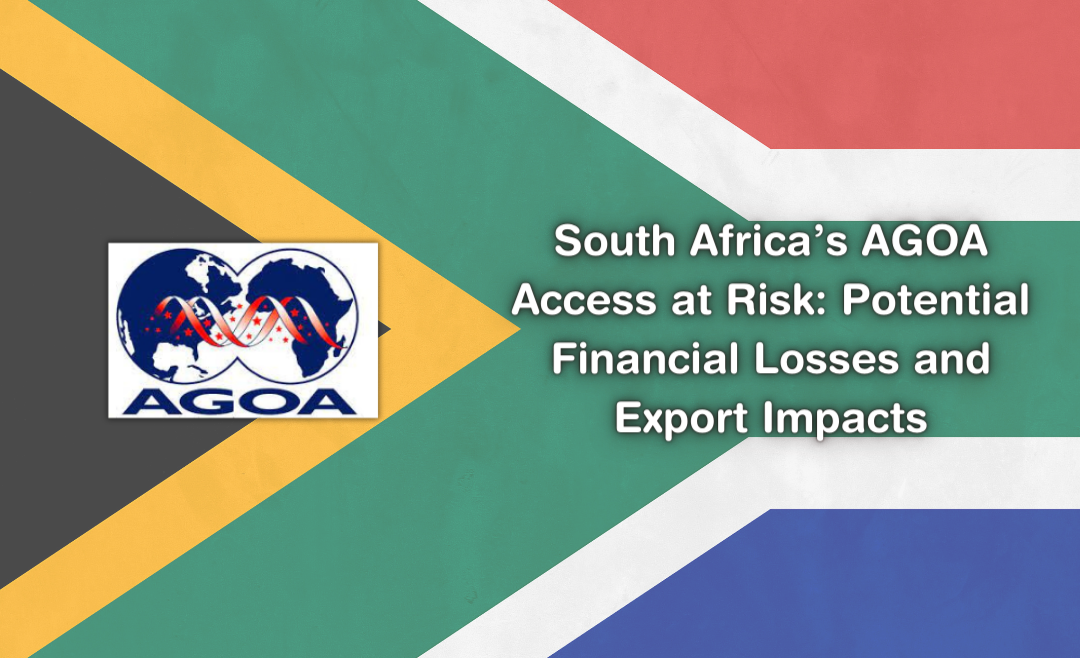South Africa’s privileged access to the US market under the African Growth and Opportunity Act (AGOA) is at risk due to concerns over its ties with Russia, which could result in significant financial losses and impact its exports. In 2022, South Africa exported approximately R60 billion worth of goods to the US under AGOA, with motor vehicles, agricultural products, and jewellery being major exports. If South Africa loses its AGOA privileges, US importers of its cars would have to pay an extra R3 billion in tariffs, potentially pricing South African cars out of the US market and causing job losses.
Calculating the exact financial impact of losing AGOA is challenging. Trade statistics differ between US and South African sources, but South African economist Donald MacKay estimates that exports to the US under AGOA totalled R27.904 billion in 2022. Vehicle exports accounted for over half of this value, followed by aluminium, chemicals, fruit, wine, ferroalloys, and even ice cream and edible ice. According to US statistics, South Africa’s total exports to the US under AGOA increased by over 50% from R39.575 billion to R59.59 billion in 2022.
Participation in AGOA has been uncertain for South Africa, as it is Sub-Saharan Africa’s most industrialised economy, and the program primarily aims to uplift poorer countries. Additionally, South Africa’s warming ties with Russia, including alleged arms sales to Moscow, have raised concerns among US legislators about undermining US national security interests. Depending on the resolution of the quarrel over the alleged arms sales, South Africa could potentially be removed from AGOA before its overall expiry in 2025 through an “out-of-cycle review.”
The potential loss of AGOA has both direct and indirect impacts on South Africa’s economy. AGOA’s direct benefits account for approximately 0.7% of GDP and are particularly significant in labour-intensive industries and those with high local content and labour absorptive supply chains, such as vehicles and agriculture. However, only about 25% of South Africa’s exports to the US are AGOA products, so trade would not stop entirely but would become more expensive and challenging for South African exporters and American importers. The broader impact lies in the potential worsening of the relationship between South Africa and the US, leading to a negative sentiment and additional risk premia in markets.
It is worth noting that AGOA is set to expire in 2025, and while it is likely to be renewed, South Africa’s participation remains uncertain. The country’s hosting of the annual AGOA forum later in the year adds to the irony of the situation. South Africa’s exports to the US and the European Union, which include a relatively high component of manufactured, value-added goods, contribute to job creation and industrialisation in the country. Losing AGOA privileges could hamper these efforts and further widen South Africa’s trade deficit with China, its largest trading partner.
Overall, South Africa potentially faces significant financial losses and job impacts if it forfeits its privileged access to the US market under AGOA. This is likely why the Minister of Finance, Enoch Godongwana, Minister of Trade and Industry, Ebrahim Patel, and Minister in the Presidency, Khumbudzo Ntshavheni, were in the US last week. They had discussions with business executives, senior officials, the US Trade Representative Katherine Tai, and Senator Christopher Coons. Coons was one of the lawmakers who advocated moving the AGOA forum away from SA later in the year. The discussions were centered around strengthening ties with Washington, and to push for the renewal of the African Growth and Opportunity Act (AGOA). Only time will tell how much ground was regained after their visit since very little information has been released about the outcome of these meetings.

